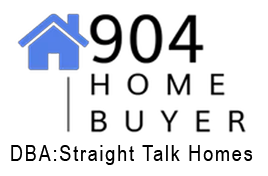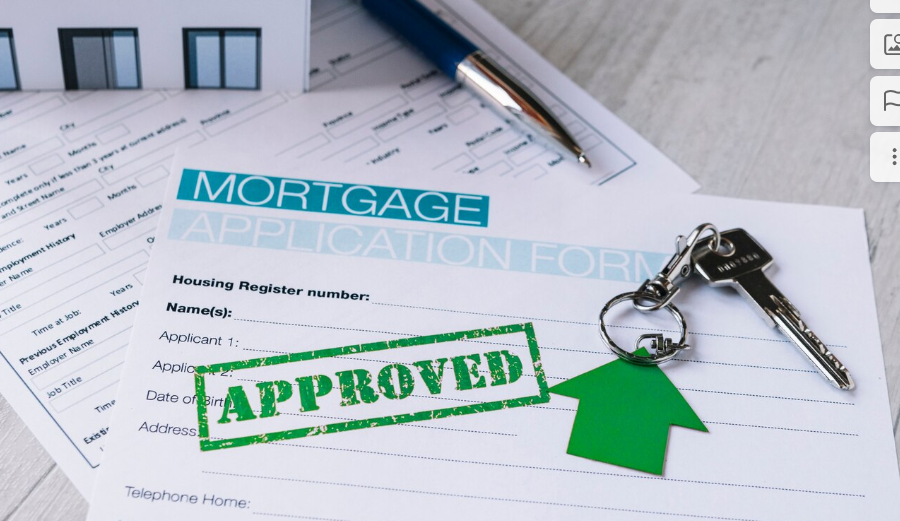Navigating Foreclosure in Florida
Your Options and Resources. Explore the steps homeowners can take to avoid foreclosure, including how selling for cash can be a viable solution.
Foreclosure can be a stressful and overwhelming experience for homeowners in Florida. The prospect of losing your home can bring about feelings of uncertainty and despair. However, it is important to remember that there are options available to you. This comprehensive guide is designed to provide homeowners in Florida with the necessary information and resources to navigate the foreclosure process. From understanding the foreclosure process to exploring options such as
selling your home fast for cash in Florida, this guide aims to empower homeowners with the knowledge they need to find solutions and resources during this challenging time.
Understanding foreclosure in Florida
To effectively navigate the foreclosure process in Florida, it is crucial to have a solid understanding of how it works. Foreclosure is the legal process that lenders use to take back a property when the homeowner fails to make mortgage payments. In Florida, foreclosures are primarily judicial, meaning they go through the court system.
The foreclosure process typically begins when the homeowner misses several mortgage payments. The lender will then send a notice of default, giving the homeowner a specific period to bring the mortgage payments up to date. If the homeowner fails to do so, the lender will file a lawsuit to initiate the foreclosure process.
It is important to note that Florida has a timeline for foreclosure proceedings that homeowners should be aware of. This timeline includes various stages, such as pre-foreclosure, auction, and post-foreclosure.
Exploring alternatives to foreclosure
Homeowners need to know that there are alternatives to foreclosure available to them. These alternatives can help homeowners avoid the devastating consequences of losing their homes and provide them with options to resolve their financial difficulties.
One alternative is loan modification, where the lender adjusts the terms of the mortgage to make it more affordable for the homeowner. This may involve reducing the interest rate, extending the repayment period, or even forgiving a portion of the principal balance.
Another option is a short sale, where the homeowner sells the property for less than the amount owed on the mortgage. While this may not allow the homeowner to keep their home, it can prevent foreclosure and minimize the impact on their credit score.
Additionally, homeowners may consider entering into a forbearance agreement with their lender. This temporary arrangement allows the homeowner to pause or reduce mortgage payments for a specified period, providing them with some financial relief.
Assessing your financial situation
Once you are familiar with the alternatives to foreclosure available in Florida, it is crucial to assess your financial situation thoroughly. Evaluating your financial standing will help you determine which option may be the most suitable for your circumstances.
Start by gathering all the necessary documentation, such as bank statements, pay stubs, tax returns, and any other financial records that can provide a comprehensive picture of your income, expenses, and debts. Create a budget to track your income and expenditures, including your mortgage payment. This will allow you to identify any areas where you can cut back or make adjustments to improve your financial situation.
Next, reach out to a housing counselor or a financial advisor specializing in foreclosure prevention. They can offer expert guidance and help you analyze your financial health objectively. They will assess your ability to make future mortgage payments and determine your eligibility for loan modifications, short sales, or forbearance agreements.
Remember, understanding your financial situation is the first step toward finding a viable solution. By taking the time to assess your finances carefully, you will be better equipped to make informed decisions moving forward.
Utilizing government programs and resources
One option that homeowners in Florida can explore when navigating foreclosure is utilizing government programs and resources. There are several federal and state initiatives aimed at assisting homeowners facing foreclosure. These programs can help borrowers obtain more affordable mortgage terms, negotiate loan modifications, or even refinance their existing loans.
One of the most well-known government programs is the Home Affordable Modification Program (HAMP), which is designed to help struggling homeowners modify their mortgages to make them more affordable. Additionally, the Hardest Hit Fund (HHF) offers assistance to homeowners in states severely impacted by the economic downturn, including Florida.
Seeking legal advice and representation
When facing foreclosure in Florida, it may be beneficial to seek legal advice and representation. A knowledgeable foreclosure attorney can guide your rights as a homeowner and help navigate through the complex legal process.
Legal professionals experienced in foreclosure cases understand the intricacies of Florida foreclosure laws and can assess your situation to determine the best course of action. They can also review your mortgage agreements, foreclosure notices, and any other relevant documents to identify any potential legal defenses or procedural errors.
By seeking legal assistance, you can enhance your chances of successfully resolving your foreclosure case. An attorney can negotiate with your lender on your behalf, explore alternative options like loan modifications or short sales, and represent you in court if necessary.
Communicating with your lender and negotiating options
One important aspect of navigating foreclosure in Florida is effectively communicating with your lender and exploring potential options for negotiation. By openly discussing your financial situation and demonstrating your willingness to find a solution, you may be able to avoid foreclosure altogether.
When communicating with your lender, it's crucial to provide accurate and up-to-date information about your income, expenses, and any extenuating circumstances that may have contributed to your financial difficulties. This will help your lender better understand your situation and determine whether alternative options, such as loan modifications or repayment plans, are feasible.
Keep in mind that lenders are often more willing to negotiate if you reach out to them as soon as you anticipate any financial difficulties. Proactive communication can demonstrate your commitment to resolving the situation and may increase your chances of finding a workable solution.
Making informed decisions and taking action
Making informed decisions and taking action are crucial steps in navigating foreclosure in Florida. After effectively communicating with your lender and exploring potential options for negotiation, it's time to assess the information and make decisions that align with your long-term goals.
To begin, thoroughly review any proposals or alternatives put forth by your lender. Understand the terms, conditions, and potential impact on your finances. It may be helpful to seek legal advice or consult with a housing counselor to ensure you fully understand the implications of each option.
Once you have a clear understanding of the available options, take decisive action. This could involve submitting required documentation, making specific payments, or adhering to agreed-upon terms. Keeping a diligent record of all communication and actions taken can protect your interests and provide evidence of your commitment to resolving the situation.
The importance of staying informed and proactive
Staying informed and proactive is key to successfully navigating foreclosure in Florida. Throughout the foreclosure process, it is essential to stay updated on any changes in regulations, policies, and resources that may impact your situation.
Follow reputable sources for information, such as government websites, local housing authorities, and legal aid organizations. These sources can provide valuable updates and guidance on available programs, initiatives, and foreclosure prevention options.
In addition to staying informed, being proactive is crucial. Take the initiative to explore all possible solutions and resources available to you. Reach out to housing counselors, foreclosure prevention agencies, and legal professionals who specialize in foreclosure cases. They can provide invaluable advice and guidance tailored to your specific needs and circumstances.
By staying informed and proactive, you can better navigate the foreclosure process, make informed decisions, and find the best possible solution to protect your home and financial well-being.
Empowering homeowners during challenging times
By staying informed and proactive, you have the power to take control of your situation and find the best possible solutions.
Throughout this comprehensive guide, we have discussed the importance of staying updated on regulations, policies, and resources that can impact your foreclosure case. We have also emphasized the value of seeking guidance from reputable sources such as government websites, local housing authorities, and legal aid organizations.
Remember to explore all possible solutions and resources available to you. Reach out to housing counselors, foreclosure prevention agencies, and legal professionals who specialize in foreclosure cases. These experts can provide the necessary advice and guidance tailored to your specific needs and circumstances.
Ultimately, your diligent efforts to stay informed and proactive will help you navigate the foreclosure process with confidence, make informed decisions, and protect your home and financial well-being. Remember, there is hope, and resources are available to support you every step of the way.

Salim Omar
Salim is a straight-talking CPA with 30+ years of entrepreneurial and accounting experience. His professional background includes experience as a former Chief Financial Officer and, for the last twenty-five years, as a serial 7-Figure entrepreneur.









